Supreme Court Upholds Death Sentence Of Protester Detained In 2019
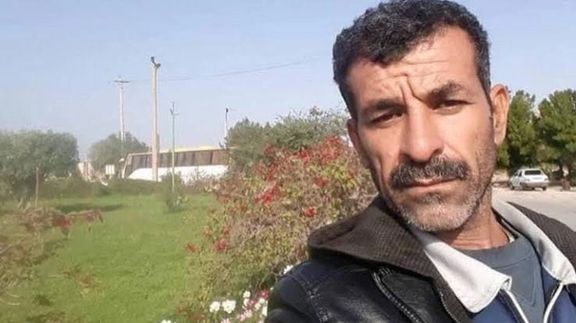
Iran's supreme court has upheld the death sentence issued to Abbas Deris, arrested during anti-government protests back in 2019.

Iran's supreme court has upheld the death sentence issued to Abbas Deris, arrested during anti-government protests back in 2019.
His lawyer, Fereshteh Tabanian wrote in a Tweet that her client's death sentence was confirmed but was not communicated to him directly, under charges of moharebeh (enmity against God).
Abbas, 49, and his 29-year-old brother Mohsen, were arrested during the Mahshahr canebrake crackdown in 2019; one of the bloodiest crackdowns in the Islamic Republic. The court acquitted his brother of the moharebeh charges.
Meanwhile, human rights activists warned that Abbas's televised confession had been given under duress. He admitted participating in the protests during the interrogation sessions but denied any role in burning tires and blocking roads.
The unarmed protesters in northern Mahshahr were shot dead by security forces after blocking the street. Security forces fired heavy artillery and set parts of the canebrake on fire when protesters ran towards it to take cover. Eyewitnesses said there were at least 20 deaths on the street and 40 deaths in the canebrake. However, the authorities never provided the exact number of deaths.
Iran's protests in 2019 were ignited by the sudden and sharp increase in fuel prices in the country, and soon turned into an anti-government movement.

Faezeh Hashemi has warned Reformist parties not to take part in the March 2024 parliamentary elections to avoid giving more power to the “dictator”.
“Any kind of presence in the upcoming elections is collaboration with lie and hypocrisy,” the late President Akbar Hashemi-Rafsanjani’s outspoken daughter has written in another open letter from Tehran’s Evin Prison. The letter is titled “Why We Should Not Participate In Elections”.
The Islamic Republic will be holding parliamentary elections on March 1. Apart from the 290 members of the parliament, prospective voters must simultaneously choose 88 members of the Experts Assembly in the March elections.
In the 2021 parliamentary elections, the ultra-conservative Guardian Council that screens candidates, rejected hundreds of reformists and centrists, handing the parliament to hardliners in a low-turnout election. Now, after months of anti-regime protests, hardliner loyalists of Supreme Leader Ali Khamenei are concerned that most voters will stay home in March, and this will further erode the regime’s legitimacy.
Addressing Reformists, Hashemi who once was a lawmaker supporting reforms said ‘dictators’ would have had a hard time maintaining their power if reformists had not fallen into the trap of “protecting the system” at any cost. They should have shown resistance to dictatorship so freedom and justice would not have been “sacrificed in the name of security”, and group and individual interests had not “taken precedence over national interests”.
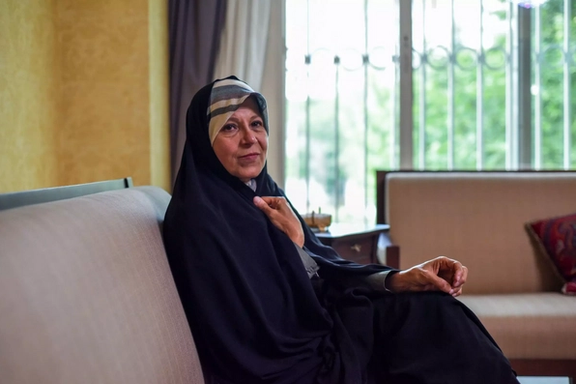
In her letter copies of which have been provided to media, Hashemi also pointed out that Iranians no longer care which political party or faction holds power in the country.
Protesters in recent years have said they don’t trust any of the factions making up the regime in the country.
Reformists can force the rulers to change their policies and eventually “take back” the power they gave to those in power now by abstaining from participation in elections that are neither fair nor free.
Hardline media attacked Hashemi Tuesday morning, equating her to radicals who want to overthrow the regime.
Javan newspaper affiliated with the Revolutionary Guard attacked all Reformists that it said are headed by former President Mohammad Khatami and accused them of conspiring to boycott the elections.
Mashregh News, another hardline publication linked with Iran’s security organs, also harshly criticized Hashemi for her letter.
Many believe that chances of anything other than a very low turnout seem to be quite slim unless the regime radically changes its approach and holds free elections, but this is very unlikely.
Many factors have contributed to the alienation of the public and even participation of noticeable reformists figures cannot change the circumstances and ensure a high turnout, reformist Shargh daily wrote Monday.
The state is now dominated by hardliners in all three branches of government, which has driven the economy into the ground, leaving little potential voter support.
Some pundits claim turnout in the 2024 elections may be as low as 15 percent.
The Reformist Front, an umbrella organization of several parties and groups, neither boycotted the 2020 election nor promoted it. Nearly all reformist candidates nominated by individual parties and groups were disqualified by the ultra-hardliner, Khamenei-appointed election watchdog, the Guardian Council.
The Front recently elected female politician Azar Mansouri as their chair. Some commentators believe that Mansouri is less likely than his predecessor Behzad Nabavi to surrender to pressures to get reformists involved in elections in which, at best, they will only be allowed to encourage people to vote.
Javan newspaper, however, accused Reformists of electing a woman as leader to ride the wave of recent ‘Women, Life Freedom’ protests.
Mashregh News called Mansouri “a radical” implying that the Guardian Council would not approve the candidacy of Reformists in the March elections.
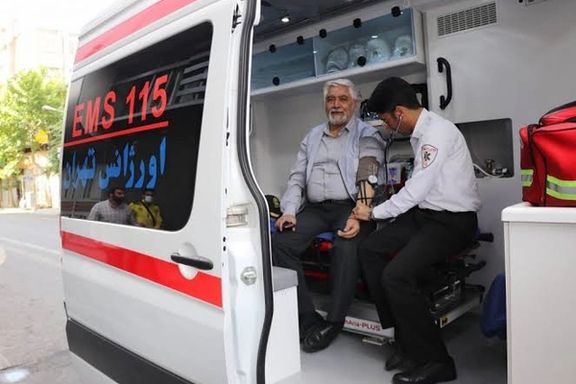
Iran has announced plans for women-only ambulances, leading to criticism by several officials and raising fears for women's safety.
Nahid Khodakarmi, the former head of the Health Committee of the Tehran City Council, warned that the regime's latest plan to separate genders in the emergency room has no other result than "wasting resources, imposing costs and disorder".
She described it as “harmful, time-consuming, and costly", risking women's access to emergency healthcare in the most vulnerable times.
After the head of the country's emergency department, Jafar Miaadfar, announced the new plan for both emergency room and ambulance segregation, Khodakarmi called it a new area of gender segregation.
"Emergency services are not segregated by gender anywhere in the world," she said on Monday. "I don't know the reason behind emphasizing on gender segregation in different areas of the healthcare system .... gender segregation in the general sense is not possible in the emergency room."
Miaadfar announced on Saturday that in the new special ambulances for women, the ambulance driver will be a man, but both technicians will be women.
Defending the decision, Miaadfar said the measure was approved by the Supreme Council of Health in a session with President Ebrahim Raisi in attendance, highlighting that the plan has been implemented in several cities and will become operational throughout the country’s metropolitan areas in the near future.
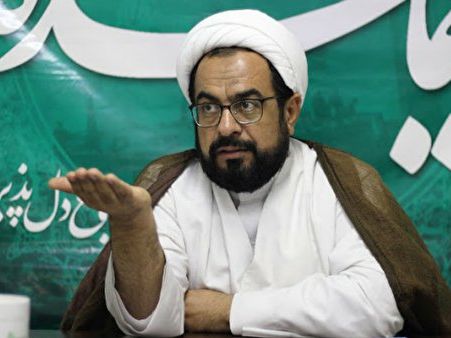
A man poured gasoline on a cleric lawmaker in Khuzestan province on Monday in an attempt to set him on fire.
Majid Naseri-Nejad, one of 18 representatives of the oil-rich province, was in the city for the groundbreaking ceremony of a nursing college when one of his constituents emptied a bottle of gasoline on the cleric before being stopped by the MP’s entourage as he was trying to flick his lighter.
According to Naseri-Nejad, the reason or motivation of the assailant is not clear, adding that he fled the scene after the incident. He added that a complaint has been filed and it will be followed up by the relevant authorities.
The lawmaker claimed that unknown gunmen had also shot at his house and car before, without providing any details about such incidents.
Attacks against the clergy have been on the rise in recent months, especially after protests engulfed the country in September, seen as the bane of the country’s problems as they gained increasing power since the revolution.
Last month, a cleric had his neck slashed while leaving Tehran's metro while another cleric was stabbed in central Markazi province and taken to hospital after being wounded by his assailant, a young man in his twenties.
In late April, a former Khamenei aide associated with the mass executions of the 1980s was assassinated in a bank in the northern city of Babolsar.
In January 2022, a well-known Iranian cleric talked about the growing hatred and grudge towards the clergy, warning of a crisis unfolding in society.
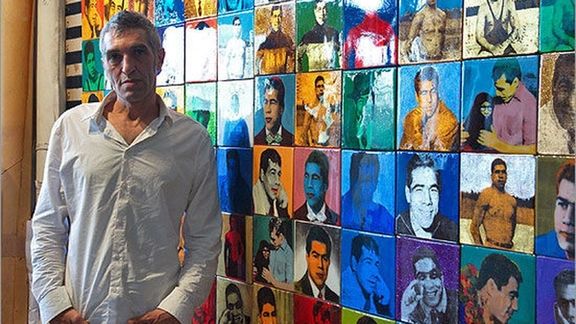
Painter Khosrow Hassanzadeh has died of alcohol poisoning in hospital in Tehran Sunday.
His tragic death is the latest in a rising tide which has claimed dozens of lives.
Hassanzadeh fell into a coma over ten days ago after having a drink apparently contaminated with poisonous methanol.
Many on social media blame the regime for Hassanzadeh and other victims’ deaths, criminalizing alcohol only driving the production into the hands of unregulated crime gangs and untrained home brews.
Since 1979, it has since caused death, blindness, and other serious injuries to hundreds from alcohol poisoning in various areas of the country every year.
According to a survey by Iran Open Data, half of all adults regularly consume alcohol despite the Islamic regime’s ban, homemade alcohol a common way to skirt the bans. In 2018, a report by the World Health Organization (WHO) ranked Iran ninth among 189 countries for alcohol consumption per capita.
The recent wave, however, appears to be much more widespread and has drawn sinister suspicions of state involvement. In Rebat Karim, a working-class town in the south of Tehran, over 40 people have been poisoned in the past month alone, six of whom died.
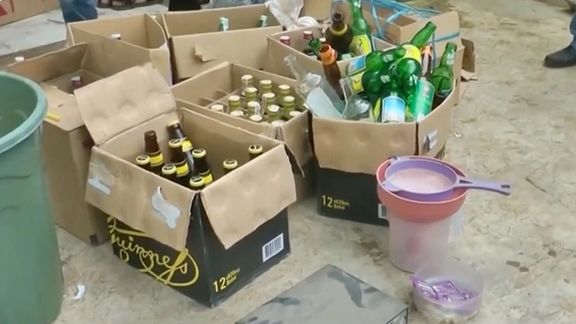
This has led to allegations that like mass schoolgirl poisonings that started in late November and spread throughout the country until the end of April, the regime itself or religious extremists protected by the regime may be involved in the poisonings.
Police Chief Ahmadreza Radan on Sunday strongly denied suspicions that the recent alcohol poisonings could have been deliberate.
Hassanzadeh was born in 1963 to a working-class Azerbaijani family who ran a fruit-selling shop in the south of the capital Tehran.
![One of Hassanzadeh’s latest collections exhibited in Tehran in 2018 was titled “[Andy] Warhol Saved Me”.](https://i.iranintl.com/images/rdk9umy0/production/97dbf6f79369b73b8a2ed158576ae13cd73c545e-902x606.jpg?rect=0,3,902,601&w=576&h=384&q=80&fit=max&auto=format)
He served as a conscript in the Iran-Iraq War (1980-1988) the experiences of which were later inspired many of his early works as did his observation of the Iranian society and its many complexities.
For years, he worked at his family’s shop while also studying art and Persian literature.
Hassanzadeh’s later works in which he used creative combinations of silk screen printing and ceramics are often characterized as ‘pop art’ and often deal with the everyday life of Iranians and sociological issues such as war, women, celebrities, traditional culture, heroes, family as well as the relation between the Iranian society and the West.
“My pictures are often to do with how east and west see one another,” Hassanzadeh told the Guardian on the phone from Tehran in May 2021.
His series of mixed-media works entitled ‘Prostitutes’ served as a commentary on the Iranian society and paid tribute to the 16 prostitutes killed by a serial killer in the religious city of Mashhad between 2000-2001.
The artists’ works were featured in solo and group exhibitions in Iran and many countries including Britain, Lebanon, the Netherlands, and the United Arab Emirates. Some of these are currently held by British Museum, Los Angeles Museum of Fine Arts, Huston Museum of Fine Arts, Agha Khan Museum in Toronto and Tehran’s Museum of Contemporary Arts.
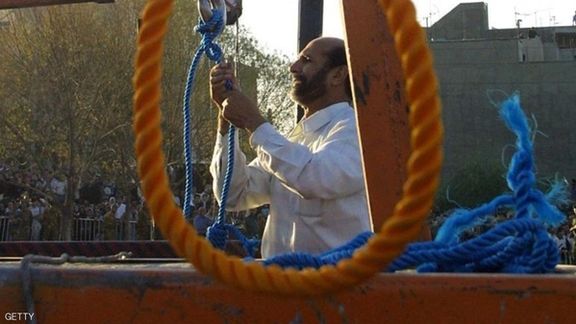
Iranian judicial official announced that three men arrested in November 2021 in southern Iran on charges of drugging and raping women were hanged on Tuesday.
The men were investigated after photos and videos of the alleged rapes began circulating on the Internet. The judiciary said that the men who were medical workers set up a fake beauty institute and drugged women with medications they stole from emergency health services.
Rape could carry the death penalty in Islamic law, but many instances of rape between acquaintances go unpunished. The Islamic penal code in Iran says that if rape takes place through deception, it is categorized as “sexual offence” but if it is carried out by force or threat of force, it is considered rape that carries the death penalty.
The law also specifically mentions intoxication of victims as the most serious category of rape with mandatory death penalty.
Court documents speak of one of the executed men setting up an “illegal beauty institute” and incapacitating some victims by injecting mild drugs before raping them and apparently taking images.
He was convicted of seven counts of rape, while one of the other suspects was convicted of four rapes and the third man for one rape.
The Judiciary in Hormozgan Province said that the men appealed their case multiple times and each time the relevant branch of the Supreme Court confirmed their conviction and the death penalty.
The hangings on Tuesday added to an estimated 354 executions so far in 2023 in Iran, the majority for narcotics convictions.